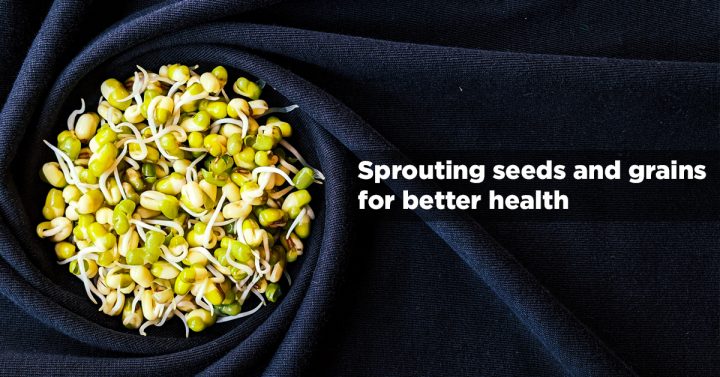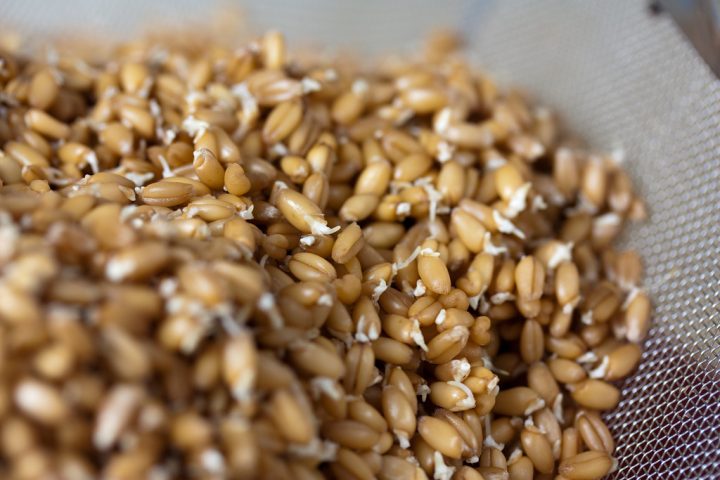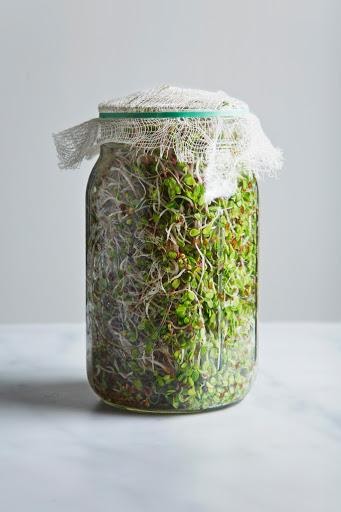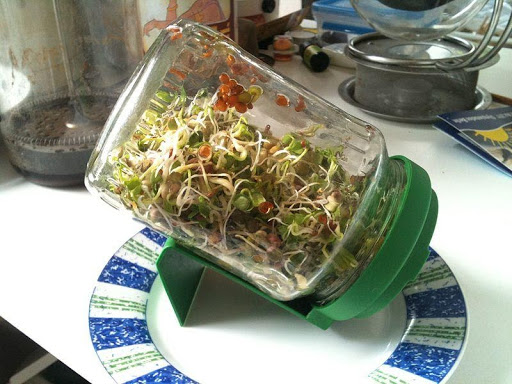
Here’s a quick guide on how to upgrade your diet by growing your own mini garden.
We all know that whole grains and colored rice are good for us by now. However, what if I told you that there is a way we can increase the health benefits and make it easily digestible right in our own kitchens?
It’s easy to forget that grains like rice, corn, and chia seeds are actually seeds with a whole plant waiting to grow inside it. When we sprout our grains we actually increase the fiber, vitamins, and minerals of our food and reduce the carbohydrates and calories.
I first learned about sprouting through Asha Peri who has been sprouting her grains for more than 10 years now. She is a plant-based chef and instructor at Ecology of Food. It is a 6-day plant-based culinary nutrition course where you can learn about the science behind what we should eat, the journey of food from farm to table, the issues in between, and how to cook from scratch using produce from organic farmers.

What are sprouted grains?
Even if it may seem new, sprouting is actually an ancient practice that has been forgotten. Peri explains that “sprouting involves soaking all kinds of seeds (whole grains, legumes, nuts, and small seeds) overnight to start the germination process. Soaking is done to remove the enzyme inhibitors (phytates, lectins, trypsin) that act as defense mechanisms for the seed via a process called hydrolysis or soaking seeds in filtered water.”
Health benefits of sprouting
Letting grains and seeds germinate makes the nutrients more bioavailable which means it is easily absorbed by our bodies. “This also increases the nutritional profile and lessens the acidity of the seeds which can be inflammatory if not soaked. This can also be considered as a form of pre-digestion.” She adds.
Which grains?
Any kind of whole-grain which still has its germ and bran intact can be sprouted. “All whole grains such as brown rice and adlai, as well as beans, nuts, and small seeds like chia and flax all need to be soaked between 8-10 hours,” says Peri.

- Wash the grains, beans, nuts, or seeds of your choice.
- Soak them overnight with clean water.
- If it’s a whole grain, then soaking them overnight is enough and ready to cook. If it’s a bean then drain them and keep it in a strainer with a plate as a cover or a glass jar with some rubber band and cheesecloth. You can also purchase a sprouting jar online.
- If you are using a jar, tilt it to its side to drain the water. Wash every 3 hours to prevent it from fermenting and spoiling
- In 1-2 days, depending on the bean, you will start to see tails sprouting and that’s when you know it’s ready to cook!
- If you don’t have time to wash every few hours or if your kitchen is too humid, you can also place your container in the fridge. Although the sprouting may take longer, you can limit your washing to about twice a day.

If you want to learn more about sprouting, Asha makes her Ecology of Food course available through her Facebook page.
Are you a proud ‘sprouter’? Start a conversation on sprouting with the Pinoy Fitness Community!








